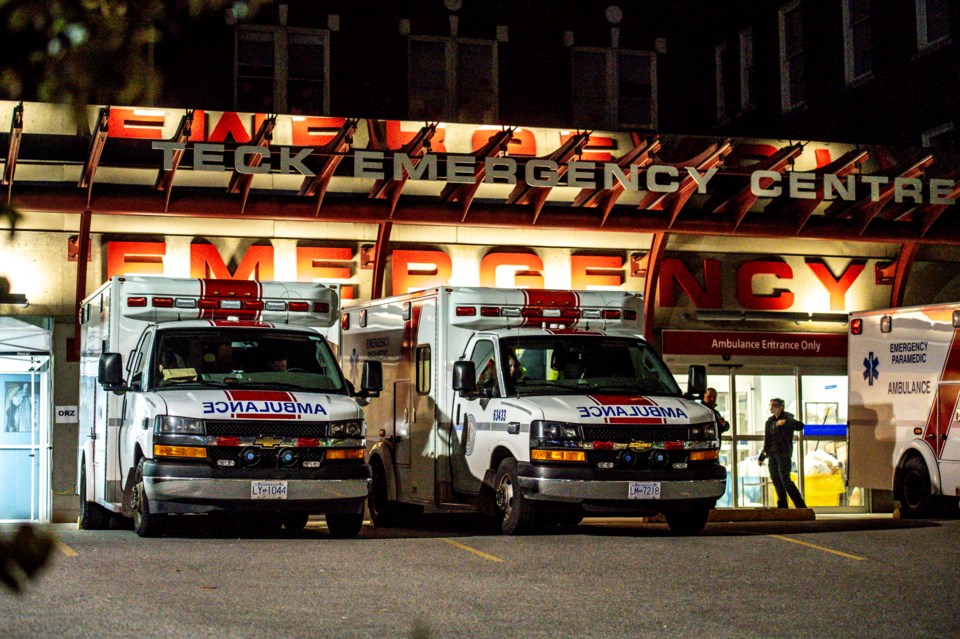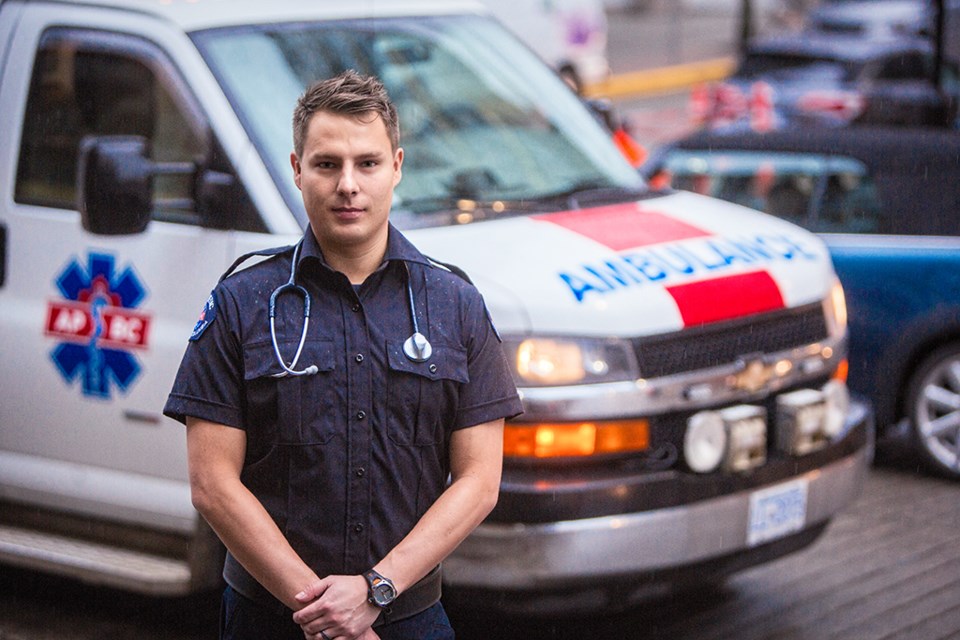The last few years have been challenging for Ambulance Paramedics and Emergency Dispatchers of BC - from dealing with an ongoing opioid public health emergency and a pandemic to environmental disasters and a tragic heat wave. The demand for ambulance paramedic services has skyrocketed, and British Columbia’s Ambulance Paramedics and dispatchers are struggling to hold the line and keep up with the intense pressure.
“Thirty percent of our paramedics are either off on workplace psychological injuries or are in treatment through our Clinical Incident Stress Management program seeing a psychologist or a mental health professional,” says Troy Clifford, president of Ambulance Paramedics of BC.
Burnout and mental health issues are hitting paramedics and dispatchers worse than ever before, leading to a critical staff shortage and longer wait times for citizens in need of emergency medical care and transport. This is a public safety and health crisis; people’s lives hang in the balance.

While ambulance paramedics and dispatchers are doing their best to respond to every medical emergency, staff shortages make it extremely difficult to respond to everyone in an appropriate amount of time. The inability to help someone in their time of need has had an adverse effect on ambulance paramedics and emergency dispatchers, causing psychological injuries that necessitate time off to heal, leading to further staff shortages.
“When we can’t do our best, that’s a morale and psychological injury,” says Clifford. “Because of system failure, bureaucracy, or operational stressors, not because we can’t treat the patient. So, when we see a call holding, or we’re in a hospital on a holding pattern waiting to drop off a patient, and we know there are serious calls holding, somebody’s loved one is waiting for an ambulance,” he adds.
As it stands, on any given day across B.C., ambulances are sitting empty while demand keeps rising. A key contributor to this situation is that ambulance paramedics and dispatchers in British Columbia are paid 30% less than other public safety first responders and health professionals.

There are currently hundreds of unfilled positions, but low wages and poor benefits make it harder to find new recruits and retain paramedics and dispatchers. Emergency medical care in British Columbia is in danger of collapsing, and we need to change now - before it’s too late.
We’re #SoundingTheAlarm. Ambulance Paramedics of BC urgently needs your help. Talk to your elected representatives and sign the petition so that British Columbia’s ambulance paramedics and dispatchers can have the resources they need to respond to all 911 calls without delay.
Ensure that you and your loved ones can receive the emergency medical care you need when you need it most so that no life gets left behind.
To show your support, sign the petition at soundingthealarm.ca.



